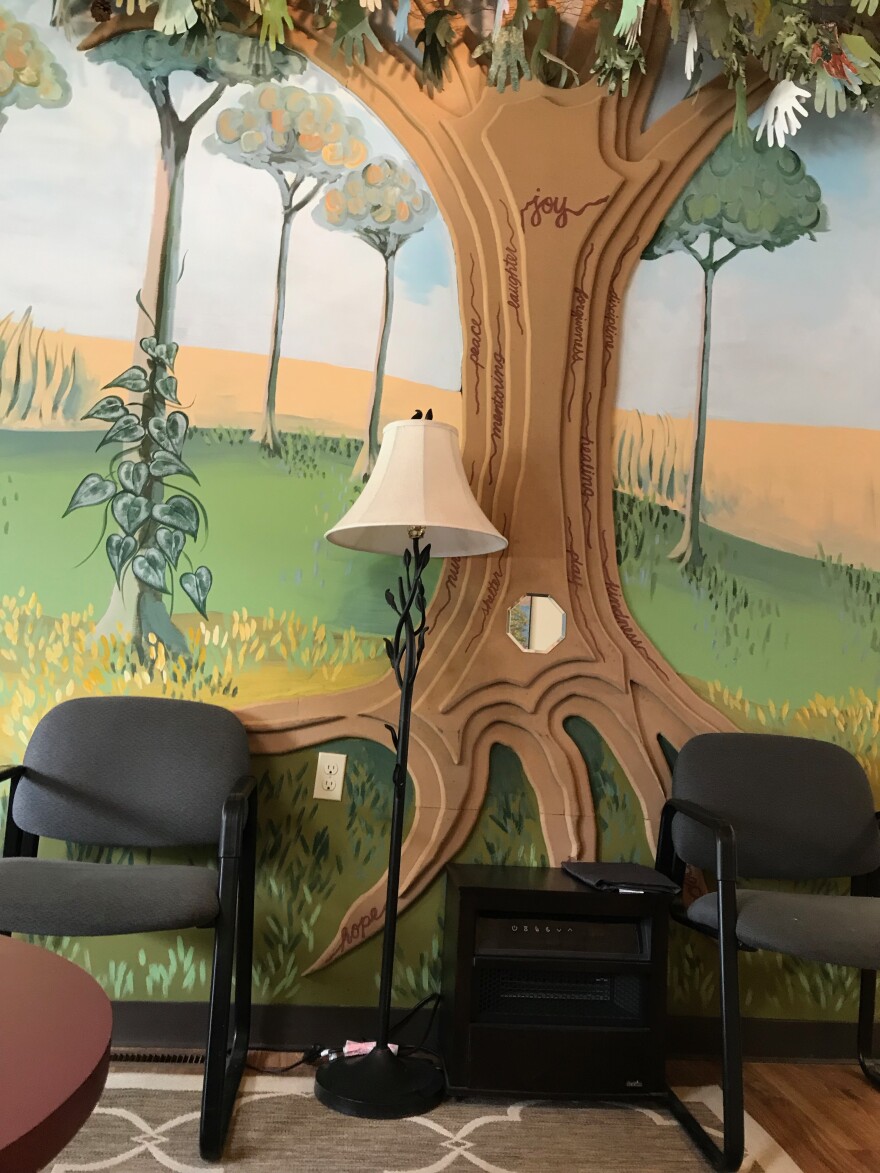Suicide rates are the highest they've been since World War II, according to the Centers for Disease Control and Prevention.
In the last 20 years, suicides in the U.S. have gone up 30 percent.
But across the country, local crisis hotlines are shutting down and national companies are taking over.
Locals in crisis turn to Third Level
Third Level Crisis Services is a small non-profit in Traverse City. For nearly half a century, they've offered a number of services for people in crisis - including a 24/7 hotline. People could call the hotline in any type of crisis; like if they were having suicidal thoughts, abusing drugs or struggling to raise a child.
Megan Morrisey, a youth crisis worker at Third Level, began volunteering at the hotline four years ago, when she was in college.

At that time she was grieving the death of her father, facing homelessness and navigating adulthood with little support from home. Morrissey says she found a home at Third Level that she didn't have in many other places; it was her safe haven.
"They saved my life countless times," she says. "I know they saved so many lives and helped so many people. People knew us and could drive by and see the lights on, know there's just always going to be a person there."
She says this local presence helped build trust and a sense of safety in the community.
Third Level says goodbye to crisis line
Third Level's crisis line served 18 counties in northern Michigan, including Grand Traverse and Leelanau.
But in April, it shut down.
"It really felt like the death of someone important," Morrissey says. "It was highly emotional."
Mental health agencies all over the region funded the crisis line's 24/7 service. But recently they all ended their contracts, eliminating the line's primary source of income and forcing Third Level to close it.
Many of those organizations switched to a company called Protocall, a national crisis hotline. Their closest call center is in Grand Rapids — 150 miles away.
When asked about why they switched, a spokesperson for North Country Community Mental Health didn't want to comment on the cost difference between Protocall and Third Level. She said she didn't have to answer that.
CEO of Northern Lakes Community Mental Health Authority Karl Kovacs didn't want to give specifics either, but says the contract costs of both hotlines were similar. He says they switched because Protocall simply has more mental health professionals.

"It's a bigger system and a larger company," he says. "We feel that's a higher level of service for the people we serve who will be calling that phone line."
Third Level had licensed staff, but they also relied on trained volunteers from the community.
A national look at local hotlines
All over the country, mental health agencies are increasingly funding national hotlines, putting small, local ones out of business.
Co-chair Travis Atkinson with the American Association of Suicidology says local crisis centers are vanishing all the time but their stories aren't often heard.
"It happens slowly, and it happens relatively quietly," he says. "The funding dries up; other organizations that have developed a national presence will come in, and because of their efficiency and how they provide crisis call services, they can do it at a lower rate."
Atkinson says these national call centers can't always provide the sort of personalized care that local crisis centers, like Third Level, can.
"People are less connected than they used to be," he says. "There is strength in a well-connected and local mental health community."
He says that's especially true in areas where people are isolated, like rural communities.
According to the Centers for Disease Control and Prevention, rural counties consistently have higher suicide rates than urban ones, at around 45% higher.

Third Level crisis resources
Third Level doesn't have their crisis hotline anymore - but, they do still offer crisis services. The organization is a part of Child and Family Services of Northwestern Michigan, and their services include legal aid, suicide prevention workshops and youth services.
Director of youth and crisis services Mickie Jannazzo says Third Level doesn't plan on going anywhere anytime soon.
"We're still here, doing things that help young people and make our communities safer from suicide," she says.
This story was featured in Points North, you can find the full episode here.


